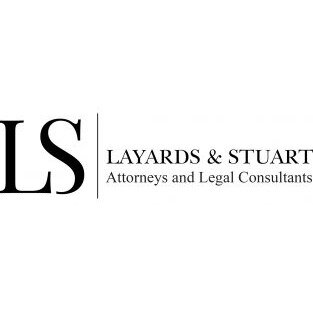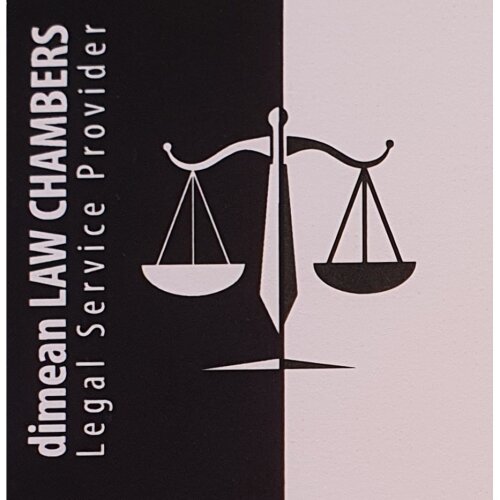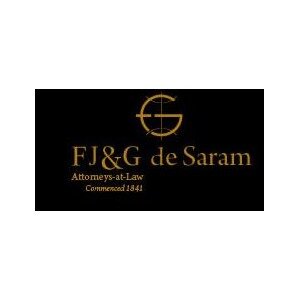Best Sexual Harassment Lawyers in Sri Lanka
Share your needs with us, get contacted by law firms.
Free. Takes 2 min.
Or refine your search by selecting a city:
List of the best lawyers in Sri Lanka
About Sexual Harassment Law in Sri Lanka
Sexual harassment in Sri Lanka is a serious issue addressed under several legal frameworks. It includes unwelcome sexual advances, requests for sexual favors, and other verbal or physical conduct of a sexual nature that affects an individual's work environment or general sense of safety. The legal measures are designed to protect the individual's dignity and to uphold rights against discrimination and harassment.
Why You May Need a Lawyer
There are numerous circumstances under which someone might require the assistance of a lawyer in sexual harassment cases in Sri Lanka. Common situations include:
- Facing harassment at the workplace and needing to understand your rights and potential remedies.
- Being a victim of harassment in public spaces and seeking protection or to press charges.
- Cases where formal complaints need to be filed within the judicial or quasi-judicial systems.
- Requiring professional representation or advice when dealing with law enforcement or employers.
- Needing assistance in negotiating settlement or compensation related to harassment claims.
Local Laws Overview
The primary legal framework in Sri Lanka addressing sexual harassment is the Penal Code, which criminalizes such behavior and prescribes penalties. Key aspects include:
- Workplace Harassment: The Employment of Women, Young Persons, and Children's Act addresses issues of workplace harassment, and mandates that employers create safe work environments.
- Public Space Harassment: The Penal Code Sections 345 and 365 deal with sexual harassment in both private and public settings.
- Legal Remedies: Victims can obtain protection orders in cases of harassment and may pursue criminal charges against offenders.
- Gender-Based Violence: The Prevention of Domestic Violence Act provides mechanisms to handle cases where harassment overlaps with gender-based violence.
Frequently Asked Questions
What constitutes sexual harassment in Sri Lanka?
Sexual harassment includes unwelcome sexual advances, requests for sexual favors, and other verbal or physical conduct of a sexual nature.
What should I do if I experience sexual harassment?
It is advisable to document the incidents, report the harassment to a superior or HR in the case of workplace harassment, and consult with a lawyer or relevant authority.
Can I file a complaint anonymously?
While anonymous complaints can bring attention to an issue, legal proceedings typically require identification to proceed.
What are the potential consequences for perpetrators?
Consequences can include fines, imprisonment, and/or mandatory counseling. Outcomes depend on the severity and specifics of the harassment.
How long do I have to report an incident?
While there is no fixed limitation period, it is advisable to report incidents as soon as possible to ensure evidence and witnesses are available.
Can I remain at my workplace while a complaint is being investigated?
Yes, employers are legally bound to ensure a safe working environment during investigations.
What support is available for victims of sexual harassment?
Victims can access counseling services, legal aid from NGOs, and may receive support from the Human Rights Commission of Sri Lanka.
Are there specific laws protecting women from sexual harassment?
Yes, the Penal Code and other legislation such as the Women's Charter provide protection specifically aiming at women.
How are harassment complaints resolved?
Complaints can lead to internal investigations by employers, legal action in courts, or alternative dispute resolution like mediation.
Is mediation a common method for resolving sexual harassment cases?
Yes, mediation is often used to resolve disputes amicably before proceeding to formal legal action, though it depends on both parties agreeing to the process.
Additional Resources
- National Child Protection Authority
- Women In Need (WIN) - Offers support services for women
- Human Rights Commission of Sri Lanka
- Legal Aid Commission of Sri Lanka
- National Committee on Women - Offers policy advocacy and support
Next Steps
If you need legal assistance with sexual harassment, consider the following steps:
- Consult a Lawyer: Seek legal advice to understand your rights and the implications of your situation.
- Document Everything: Keep a detailed record of all incidents, communications, and relevant documents concerning the harassment.
- Report the Incident: If applicable, report the harassment to your employer or the relevant authority.
- Contact Support Organizations: Reach out to NGOs and governmental bodies dedicated to handling such matters and offering support.
- Consider Mediation: If appropriate, mediation might be a viable option to resolve the issue outside of court.
Lawzana helps you find the best lawyers and law firms in Sri Lanka through a curated and pre-screened list of qualified legal professionals. Our platform offers rankings and detailed profiles of attorneys and law firms, allowing you to compare based on practice areas, including Sexual Harassment, experience, and client feedback.
Each profile includes a description of the firm's areas of practice, client reviews, team members and partners, year of establishment, spoken languages, office locations, contact information, social media presence, and any published articles or resources. Most firms on our platform speak English and are experienced in both local and international legal matters.
Get a quote from top-rated law firms in Sri Lanka — quickly, securely, and without unnecessary hassle.
Disclaimer:
The information provided on this page is for general informational purposes only and does not constitute legal advice. While we strive to ensure the accuracy and relevance of the content, legal information may change over time, and interpretations of the law can vary. You should always consult with a qualified legal professional for advice specific to your situation.
We disclaim all liability for actions taken or not taken based on the content of this page. If you believe any information is incorrect or outdated, please contact us, and we will review and update it where appropriate.
Browse sexual harassment law firms by city in Sri Lanka
Refine your search by selecting a city.

















